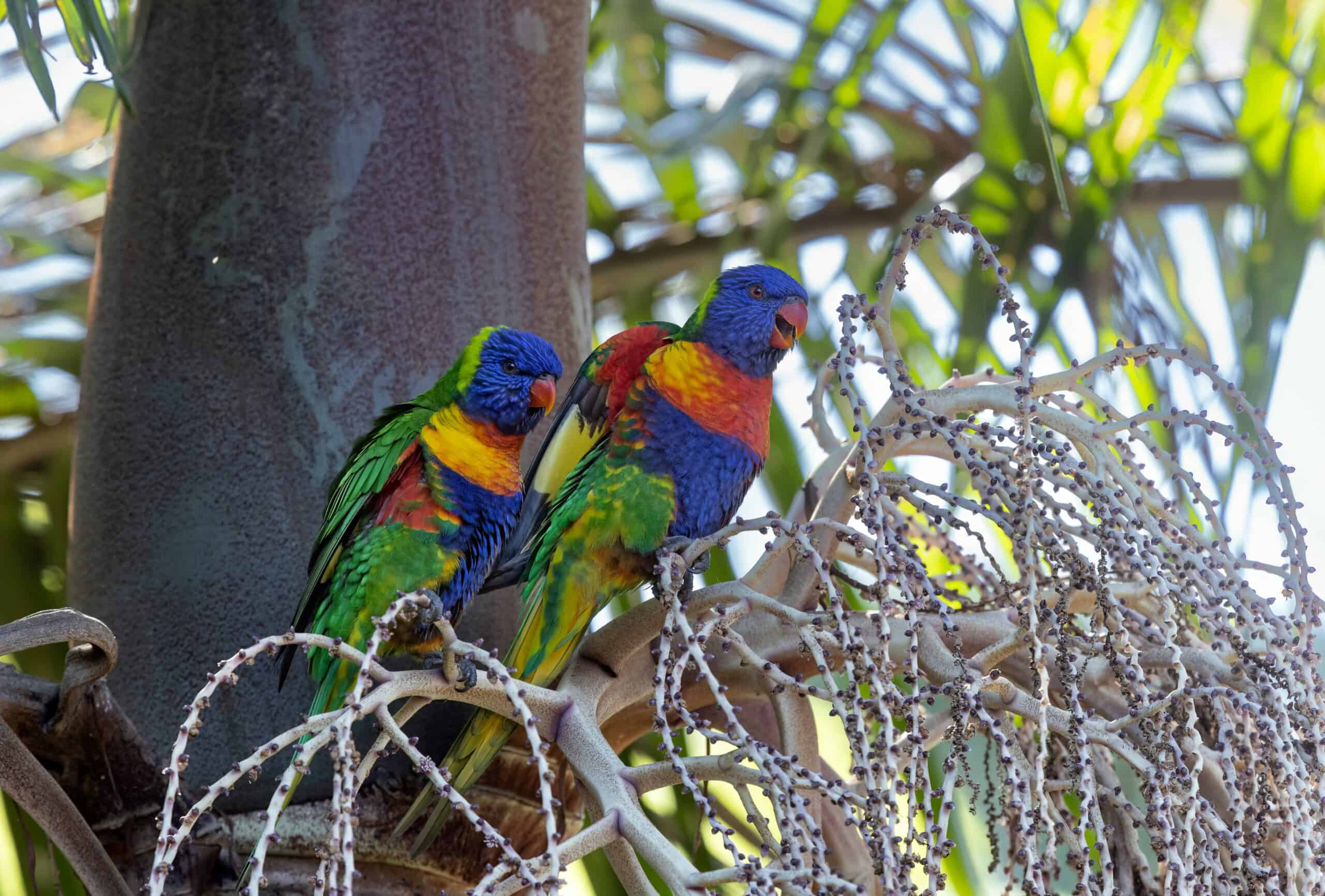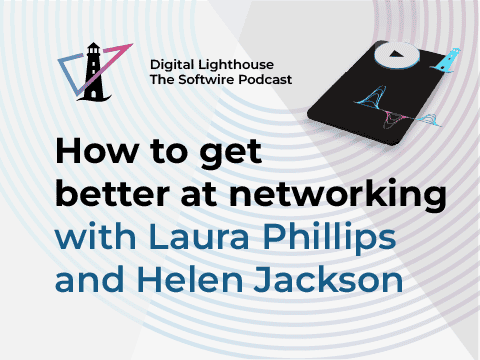
I want to tell you about a week that changed my life, professionally and personally. It’s a story about a piece of music that lit my soul on fire, suddenly understanding commitment, and freedom.
But before we get to that, let’s talk about feeling uncomfortable. As leaders, we feel uncomfortable and do uncomfortable things all the time. Things like making tough decisions, having tough conversations, getting it wrong when the stakes are high, course-correcting people who don’t want to be corrected, being unpopular, feeling isolated, and so on. (Someone recently said to me, “It seems like the road to Senior Leadership means our job gets worse and worse until we pick a point at which we want it to stop getting worse.” I happen not to agree with this take, but I can see where the opiner is coming from.)
Taking one kind of uncomfortable in particular: frustration.
It’s that hot, tight, full-to-bursting feeling of urghhh, why won’t this thing just work? Why is this test still failing? Why has Mario missed that ledge for, like, the 162nd time? Why has my client changed their mind at the last minute and decided not to commission the work at all? Why does my cat feel the need to sing the song of his people at 3:15am every night like clockwork? And, come to think of it, WHERE are my fricking car keys???
What would you say if I were to claim that frustration offers us a valuable professional, nay, life skill? Bear with me.
Frustration tells us that things are not as we’d prefer them to be
Some triggers for frustration are more under our direct control than others. Regardless, frustration is telling us that things are not as we’d prefer them to be – in the same way that anxiety warns us about the potential tiger in the bushes, disgust helps us avoid substances and moral positions that might cause us harm, anger points out that a boundary has been crossed, sadness shows us that we cared about something and need some time to heal, and so on.
There are no inherently negative emotions, even though our emotional responses can become maladaptive if we’re not careful, such as starting to see tigers in all bushes. Frustration may feel unpleasant, but it’s simply a messenger trying to get our attention.
Frustration about not being able to achieve something, for example, my inability to stay on the Rainbow Road, means we’re saying, “I wish I were better at this.” Frustration about performance tells us about a skills gap – a delta between how well we can perform and how well we’d like to perform. We can almost always narrow a skills gap relating to performance if we want to.

Outside times we can’t perform at the level we’d like to, we also experience frustration relating to normal annoying features of a complex universe: things that are outside our direct control. For example, disobedient personal possessions, recalcitrant kitties, and that damn blue shell seconds before the finish line. These kinds of frustrations similarly show us that we’re trying to achieve something beyond our reach. It’s just that this time, the thing beyond our reach is the ability to tolerate these insults. This is still a skills gap, and hence there’s an opportunity to narrow it.
Frustration points out a skills gap in our ability to cope with not getting what we want, whether that’s performance related or universe related.
We can add arrows to our quiver of coping skills
Coping skills are just that – skills rather than traits. Again please, repeat after me: skills are not traits.
Were you lectured as a child about how patience is supposedly a virtue? …or was that just me – trapped in primary school maths lessons, jiggling with excitement at having finished my worksheet and merrily distracting my friends until I was placated/rewarded with the next one? This form of cultural terrorism – threatening to keep doing something until I get more of what I want, at which point I promise to stop – is an approach that has stayed with me, by the way.
I’ve never found ‘virtue’ language helpful – it moralises something we can actually practice. I’d rather talk about patience as a muscle, not a moral.
Let’s have a growth mindset: patience is not a trait one either has or does not. Patience is not a function of “being a good person”, whatever that is.
Patience is just one arrow in our quiver of cognitive coping skills for getting through those times when life gives us inescapable lemons. And our quiver is never full: we can always add more arrows.
Let’s think about some other crucial coping skills for a minute, grouped so they’re not a boring, flat list:
- Endurance
- Patience: “Things will improve eventually and I can wait.”
- Resilience: “Something challenging happened, but I’ll be fine again in a minute.”
- Distress tolerance: “I am having some unpleasant feelings, but I can endure them in a healthy way.”
- Agency
- Determination: “I will try again until I get it right.”
- Setting boundaries: “If you do this, then I will do this.”
- Creativity: “This isn’t working, so I’ll find another way.”
- Mindset shifts
- Flexibility: “Something unexpected happened, and I’m fine to improvise until I can set new goals and make a new plan.”
- Cognitive reframing: “My feelings are not immutable, and thought patterns that don’t serve me can be replaced with more healthy ones.”
- Acceptance: “I accept reality how it is, even if it’s painful.”
And there are many more. Improving any or all of these coping skills will help us handle feeling frustration, and we can get there with practice. And how? We must learn to interpret lemons as an opportunity for growth.

Inspiration, commitment, and freedom
Now then, back to the music.
I was about 12, on a residential chamber music course, and my string quartet had been assigned the second movement of Beethoven’s Op 59 No 2, a candid, hymnlike, unspoilt, uncompromising declaration of love. Carl Czerny wrote that this movement had occurred to Beethoven as he, “…contemplated the starry sky and thought of the music of the spheres…”. And you’d better believe it.
On day one, my quartet’s rendition was instead an uncompromising declaration of social anxiety, teenage hormones (I had a thumping crush on the other violinist), and being shamefully underprepared.
Our tutor was a bit of a philosopher. He told us about beauty and truth, and how perfection can never quite be touched yet we still strive for it. And how musicians must create and recreate this tension time and time again, and how lucky we are to get so close to something so beautiful. We were genuinely inspired to work.
Yet we remained awful. For hours upon hours we were awful. For my own part, the tutor would ask for some note to swell in a particular way. I would fail 20 times. Then on the 21st, I’d pull it off, but the note was out of tune. And on the 41st, my intonation was fine, the expression was nearly there, but I produced a silly choice of vibrato. You get the picture. Then add three other young musicians and one of the most emotionally complex composers who ever lived, and the potential for chaos goes off the chart. Most of the time I felt hot, cross and unfulfilled.
I’d love to tell you that after tens of hours that week our final public performance was a transcendental marvel. It was…approximately “fine”. But, crucially, we didn’t just survive the struggle towards that unattainable level of perfection, we learned to love it, realising that the struggle itself was the reward. This is the beauty and pain of practice. We knew that we could get closer and closer to the unattainable thing if we invested the time, while still experiencing the wonderful tension of never quite getting there.
Standing around in the sun after that concert, I remember suddenly thinking: goodness me, we can do anything we want – I’ve been handed the keys to the universe. And after a subsequent nearly 30 years, the better musician I have become – painstaking step by painstaking step – thanks this 12-year-old me for grabbing those keys.

Going from can’t to can means difficult feelings are on the way
Deliberate, reflective, repetitive exposure to things we can’t do eventually results in us becoming more able to do them. This route from can’t to can relies on the frustration of experiencing a skills gap. Without acknowledging the gap, we have no guiding star for improvement. Therefore we shouldn’t avoid the things that cause us frustration – we should lean in instead.
Avoiding situations that provoke frustration (or anxiety or disgust or anything else) only teaches us that situations where we experience difficult feelings are dangerous and unmanageable. And, actually, avoidance is more likely to increase the intensity of the difficult feelings when triggering situations arise unanticipated, as they always do.
Instead, over time, by sitting with each feeling and handling it appropriately, we slowly increase the amount of unpleasantness we can handle until we no longer see difficult feelings as a threat. We see them only as a temporary, and normal, part of life.
Nothing that happens in the world ever causes feelings
Nothing that happens in the world ever causes feelings. Things that happen cause thoughts, which inform emotional responses, which influence actions. We have feelings because of some internal need we have, which is either being satisfied (pleasant feelings) or not (difficult feelings).
This morning, I was not frustrated because my cat was singing. I was frustrated because I was tired, and had an unmet need for uninterrupted sleep.
Finding it hard to play in tune as a child did not cause that hot, cross frustration. I was frustrated because I enjoy playing the violin, because it’s important to me to achieve my goals, and because it’s important to me to see myself as someone who can learn new things quickly.
Frustration isn’t about the thing: it’s about the need.
Recognising that feelings originate from within us rather than from the external world suggests yet again that feelings are not immutable facts, and that they are negotiable based on how we interpret the external thing that happened.
Feelings are like facts in the way that the weather is like the climate: they are real, measurable and valid; but they are part of a bigger ecosystem and don’t require to stay the same minute to minute.
If it’s going to rain, we can’t do anything to stop it (unless we’re Paul McCartney), but we can open an umbrella and wait it out (acceptance, patience, distress tolerance). Or dance in it (creativity, flexibility). Or think of how much plants will like it (cognitive reframing). Or use the standard UK inclement weather as an excuse to bond with our neighbours (many coping skills). Sogginess is not a choice, but coping with it is more so. If we interpret the rain as positive rather than negative, we can experience pleasant feelings rather than difficult feelings.
Knowing that frustration arises from how we interpret something rather than from some external truth gives us the confidence to employ our coping skills, meaning we can handle frustration when it comes.
Courting frustration makes our world bigger
As we increase our ability to cope with frustration, we can handle bigger and bigger deviations from how we would prefer situations to be.
Sharpening our coping skill muscles on the horizon of frustration (I love mixing metaphors) – wherever that horizon currently is for a given skill – pushes it further away. Then for the same amount of frustration, our sphere of impact can be bigger.
I feel duty-bound to point out that, for me at least, the feeling of frustration doesn’t get smaller; it’s just that I get more payback for it. And over time, I’ve learned not only to tolerate frustration, but to relish it. Reinterpreting frustration has changed how pleasant or difficult I find the feeling.
Eventually we come to recognise our, “Urrrghhhh I just caaaan’t do this,” for what it is: a helpful prod towards, “Phew, you know, that wasn’t half bad.” Frustration shows us an opportunity for growth. Spotting opportunities for growth is invaluable if we’re committed to a career, or indeed a lifetime, of professional and personal development, and ultimately fulfilment.
Opportunities are not contracts. We get to choose where to spend our time – maybe you think time spent learning how to ride a unicycle while reciting Shakespeare backwards is worth it and maybe you don’t – but frustration highlights what matters to us, and points us to the opportunity to grow in ways we care about.
We can learn any skill if we put the time in, and frustration shows us the way forwards. There you go, now you have the keys to the universe too …
… or at the least the courage to tackle Rainbow Road one more time.


